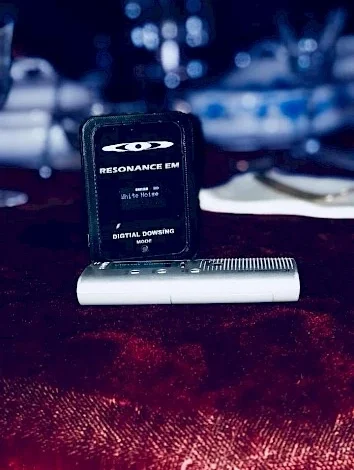You have a fancy piece of equipment in your hands, but do you really know how it works?

On social media, paranormal pages are prevalent with ‘evidence’ being presented or live streams of their investigations. The problem herein is that a lot of investigators don’t truly understand how their ‘paranormal equipment’ that they used during their vigils actually works. It means that they can’t correctly identify a false reading or properly interpret the readings they have received. A perfect example is devices that can be triggered by mobile phone signals such as K2’s and ghost meters that use next to a mobile phone during a live stream. The closer they get to the K2 the more it lights up. It is not the spirit communicating with you, it is the mobile phone signal. The market is full of ‘gimmicky’ products that have flashing lights and hey I love flashing lights they can be colorful and exciting. If a light flashes, people tend to take that to be a spirit communicating with them. With some further understanding of what it is that makes that light flash, their opinion may very quickly change. We need to understand how our equipment works
We all have different pieces of equipment we like using. Maybe it is a simple digital recorder to catch evps. Maybe it is a spirit box to hear voices? Maybe you like to read emf levels and use a mel meter or take the room temperature. Its personal preference. They can all come together to form great investigative tools and all have varied results, but we can’t really analyze or stand by any of these results if we don’t really know how the equipment gathers this information and what this information means. For example, a spirit box goes backwards and forwards though radio frequencies at a speed you set. Depending on how fast you are sweeping, which direction you are sweeping, how sensitive your antenna is or whether you are in a commercial area will depend on how much radio bleed you get. Just because a voice has come through, you can’t jump straight away and say it is something paranormal without knowing the above basic information. How do you come know all of this information? A perfect example I can present is that my brother and I have SB7 Spirit boxes. One has an extremely sensitive antenna whilst the other has very little interference as it is detuned. They are exactly the same model yet perform completely differently in the same setting when we run them side by side. One has very little radio bleed whereas the other is just a constant spatter of half words or musical notes which are interference. The settings on your equipment may be slightly different to someone elses and may be more sensitive for example so it is important to understand how YOUR piece works in the settings that you work in as it may perform differently to the same device another person is using.

We all of course have to start somewhere so how do we find out this stuff and learn how it works? First of all, most equipment comes with a manual so reading it is the first step. Start researching the equipment online. Talk to fellow investigators who use the same equipment. You also need to Practice Practice Practice Practice. Learn every button and function of your equipment out in the field. Learn how it reacts in different circumstances. If you have multiple units of the same equipment test it all in the same way because it might react differently like my example above. What gives it false positives?
** In relation to testing equipment in your own home, a lot of investigators choose not to just because you could potentially be opening up a door of communication. If this is something you don’t want happening in your home and you are worried, don’t do it at home but again this is personal choice.
Know that piece of equipment inside out! Instead of having a full big kit of tools that you use and only knowing a little bit about a few pieces, choose a couple of pieces and make them your staple. Learn them inside out. Are you part of team or have people you go out investigating with? Each member of a team usually has a piece of equipment or a different style of investigating and when they all come together, most areas are covered and it is something that works well for a lot of people. There is more we can be doing and we are always trying to think of new things to try but we always go back to our ‘staples’ because we know them so well inside and out and you can confidently interpret the results.
What is the one piece of equipment you love the most? Study it. Use it and understand it to death. If someone has a question be able to answer it confidently and more importantly stand by your opinion. If you have done then leg work and know it really well then if someone questions you and takes you to task over it, you can offer your opinion knowing that you know what you are talking about. There is a lot of eyebrow raising going on when people present evidence. This is mainly due to the people presenting it not knowing how equipment works. It is also really hard to convince someone that wasn’t there with you that you may have something so you need to be able to confidently stand by it. If you believe in what you have caught and have the knowledge and facts behind you, you have done an awesome job as an investigator! Most importantly, seek the review of your peers. The people within the paranormal that you respect and may be able to help give you a proper experienced objective opinion on what you have captured. That is what being a paranormal investigator is all about my friends!
Don’t forget to LIKE the Facebook page for updates on new content www.facebook.com/livinglifeinfullspectrum
If you enjoy LLIFS, consider buying me a book (otherwise known as buy me a coffee but I don’t drink coffee and I LOVE books). Your donation helps to fund the LLIFS website so everyone can continue to access great paranormal content and resources for FREE!




